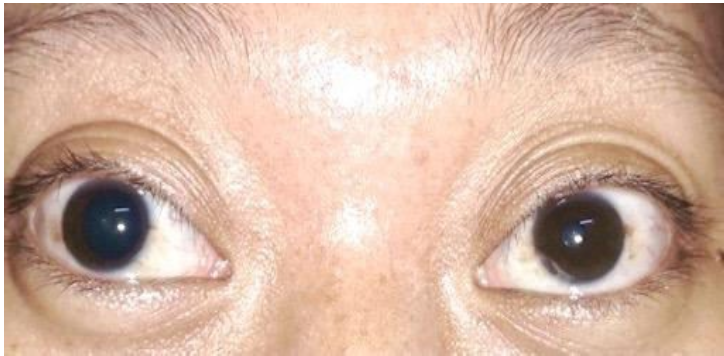REDUCING TREATMENT BURDEN FOR AGE-RELATED MACULAR DEGENERATION PATIENTS: A SYSTEMATIC REVIEW OF RANIBIZUMAB PORT DELIVERY SYSTEM
DOI:
https://doi.org/10.35749/9tcvv544Keywords:
ranibizumab port delivery system, neovascular age macular degeneration, age macular degeneration, wet age macular degeneration, AMD, nAMD, wet AMDAbstract
Introduction and Objective: Ranibizumab port delivery system (PDS) is a newly developed method that provides a continuous, long-term supply of ranibizumab into the vitreous, reducing the burden of monthly intravitreal injection visits for neovascular age-related macular degeneration (nAMD) patients. This review aims to evaluate the efficacy and safety of ranibizumab PDS in nAMD.
Methods: An extensive literature search was performed on 4 online databases: PubMed, Cochrane, ProQuest, and ScienceDirect. The inclusion criteria are human studies comparing ranibizumab port delivery system and intravitreal ranibizumab, English language, with full-text journal available. The main outcome measurements are best-corrected visual acuity (BCVA) in Early Treatment Diabetic Retinopathy Study (ETDRS) letters, central foveal thickness (CFT), and adverse events.
Result: Two randomized controlled trials (RCTs) with a total of 635 adults were evaluated. At week 96, ranibizumab PDS reported observed mean BCVA changes from baseline (-1.0; +4.2; ETDRS letters) compared to monthly intravitreal ranibizumab (-1.1; +6.1; ETDRS letters). However, there was an increase in mean CFT changes from baseline (+9.9; -15.3 vs ?1.3; -21.3, µm) and more severe adverse events frequency (22; 4 vs 4; 0) with ranibizumab PDS versus monthly intravitreal ranibizumab, respectively.
Conclusion: Ranibizumab PDS showed comparable visual outcomes to intravitreal ranibizumab while demonstrating marginally inferior anatomical outcomes and higher incidence of severe adverse effects. Despite this, with fewer treatment visits required for up to 24 weeks, ranibizumab PDS can potentially reduce the treatment burden in nAMD patients with poor compliance. Further studies are needed to provide better patient eligibility guidelines and recommendations for adverse event management of ranibizumab PDS.
Downloads
References
Brown DM, Heier JS, Ciulla T, Benz M, Abraham P, Yancopoulos G, et al. Primary Endpoint Results of a Phase II Study of Vascular Endothelial Growth Factor Trap-Eye in Wet Age-related Macular Degeneration. Ophthalmology. 2011;118:1089–97.
Campochiaro PA, Marcus DM, Awh CC, Regillo C, Adamis AP, Bantseev V, et al. The Port Delivery System with Ranibizumab for Neovascular Age-Related Macular Degeneration: Results from the Randomized Phase 2 Ladder Clinical Trial. Ophthalmology. 2019;126:1141–54.
Khanani AM, Callanan D, Dreyer R, Chen S, Howard JG, Hopkins JJ, et al. End-of-Study Results for the Ladder Phase 2 Trial of the Port Delivery System with Ranibizumab for Neovascular Age-Related Macular Degeneration. Ophthalmol Retina. 2021;5:775–87.
Regillo C, Berger B, Brooks L, Clark WL, Mittra R, Wykoff CC, et al. Archway Phase 3 Trial of the Port Delivery System with Ranibizumab for Neovascular Age-Related Macular Degeneration 2-Year Results. Ophthalmology. 2023;S0161-6420(23)00135-5.
Boyer DS, Yoon YH, Belfort R, Bandello F, Maturi RK, Augustin AJ, et al. Three-year, randomized, sham-controlled trial of dexamethasone intravitreal implant in patients with diabetic macular edema. Ophthalmology. 2014;121:1904–14.
Page MJ, McKenzie JE, Bossuyt PM, Boutron I, Hoffmann TC, Mulrow CD, et al. The PRISMA 2020 statement: an updated guideline for reporting systematic reviews. BMJ. 2021;372:n71.
Ouzzani M, Hammady H, Fedorowicz Z, Elmagarmid A. Rayyan—a web and mobile app for systematic reviews. Systematic Reviews. 2016;5:210.
Vukicevic M, Heraghty J, Cummins R, Gopinath B, Mitchell P. Caregiver perceptions about the impact of caring for patients with wet age-related macular degeneration. Eye (Lond). 2016;30:413–21.
Sugar EA, Jabs DA, Altaweel MM, Lightman S, Acharya N, Vitale AT, et al. Identifying a clinically meaningful threshold for change in uveitic macular edema evaluated by optical coherence tomography. Am J Ophthalmol. 2011;152:1044-1052.e5.
Riva I, Roberti G, Oddone F, Konstas AG, Quaranta L. Ahmed glaucoma valve implant: surgical technique and complications. Clin Ophthalmol. 2017;11:357–67.
Budenz DL, Feuer WJ, Barton K, Schiffman J, Costa VP, Godfrey DG, et al. Postoperative Complications in the Ahmed Baerveldt Comparison Study During Five Years of Follow-up. Am J Ophthalmol. 2016;163:75-82.e3.
Ho AC, Busbee BG, Regillo CD, Wieland MR, Everen SAV, Li Z, et al. Twenty-four-Month Efficacy and Safety of 0.5 mg or 2.0 mg Ranibizumab in Patients with Subfoveal Neovascular Age-Related Macular Degeneration. Ophthalmology. 2014;121:2181–92.
Daien V, Nguyen V, Essex RW, Morlet N, Barthelmes D, Gillies MC, et al. Incidence and Outcomes of Infectious and Noninfectious Endophthalmitis after Intravitreal Injections for Age-Related Macular Degeneration. Ophthalmology. 2018;125:66–74.
Awh CC, Barteselli G, Makadia S, Chang RT, Stewart JM, Wieland MR, et al. Management of Key Ocular Adverse Events in Patients Implanted with the Port Delivery System with Ranibizumab. Ophthalmol Retina. 2022;6:1028–43.
Pieramici DJ, Heimann F, Brassard R, Barteselli G, Ranade S. Virtual Reality Becomes a Reality for Ophthalmologic Surgical Clinical Trials. Transl Vis Sci Technol. 2020;9:1.
Chang MA, Kapre A, Kaufman D, Kardatzke DR, Rabena M, Patel S, et al. Patient Preference and Treatment Satisfaction With a Port Delivery System for Ranibizumab vs Intravitreal Injections in Patients With Neovascular Age-Related Macular Degeneration. JAMA Ophthalmol. 2022;140:771–8.
Downloads
Published
License
Copyright (c) 2024 Dewa Ayu Anggi Paramitha, Ajeng Kartika Ayu Putri, Seruni Hanna Ardhia, Jovita Jutamulia

This work is licensed under a Creative Commons Attribution-NonCommercial-ShareAlike 4.0 International License.


